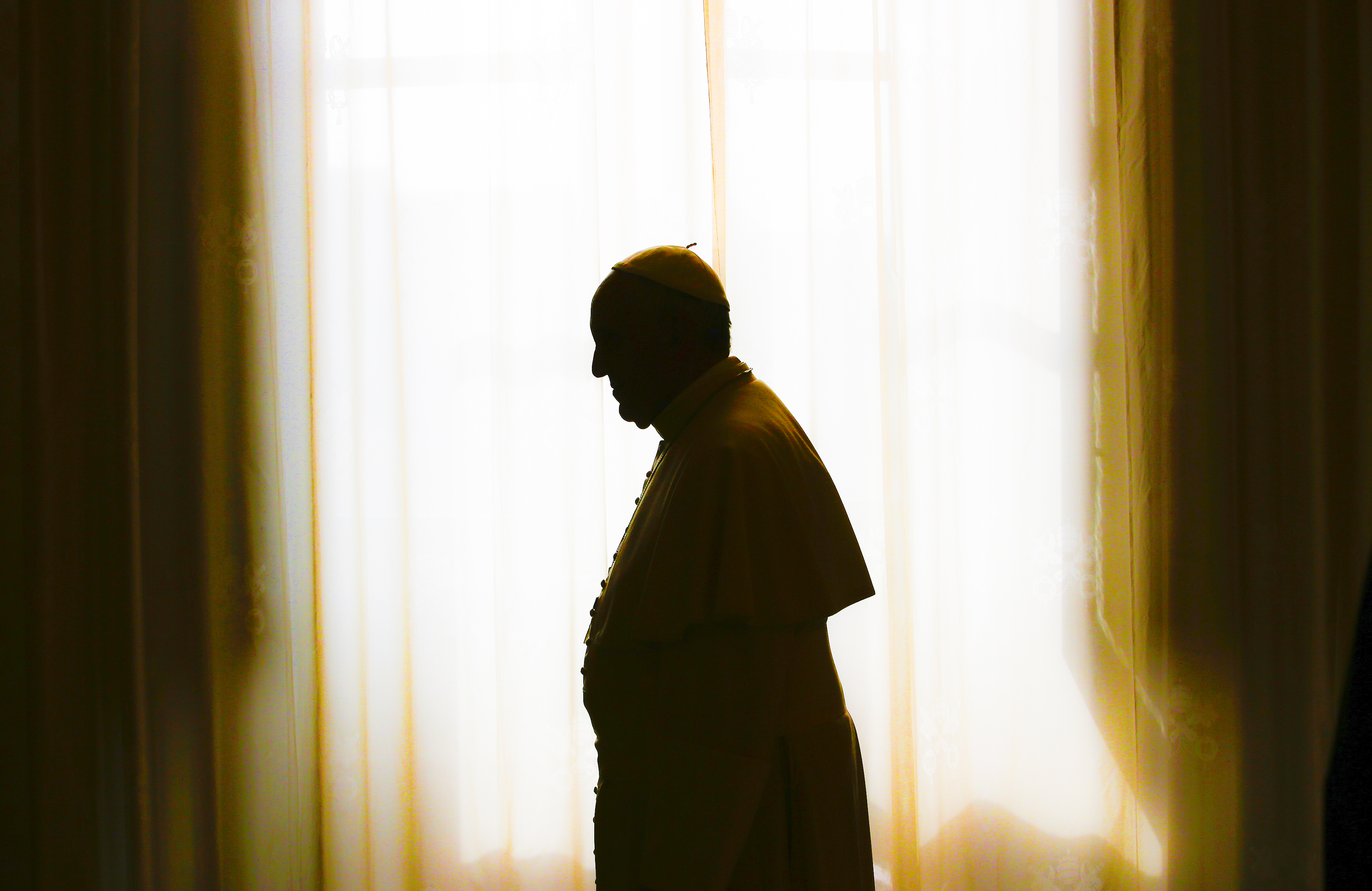How Pope Francis vandalized marriage
The pope's "mercy" is of a fraudulent and condescending variety


Are you married? You may think so, but the pope has other ideas.
Pope Francis has declared this year a Jubilee year of mercy. He has made it easier to restore people who have participated in abortion to full communion. He obviously wants to create some momentum for change and reform at this fall's Synod of the Family. And so, he just took one major item off the table, by unilaterally reforming the Church's annulment process.
Unfortunately, this reform amounts to vandalism on the sacrament of marriage, and is a deeply condescending insult to average Catholics.
The Week
Escape your echo chamber. Get the facts behind the news, plus analysis from multiple perspectives.

Sign up for The Week's Free Newsletters
From our morning news briefing to a weekly Good News Newsletter, get the best of The Week delivered directly to your inbox.
From our morning news briefing to a weekly Good News Newsletter, get the best of The Week delivered directly to your inbox.
First, a little background. Traditionally, the grounds for annulment of a marriage are a lack of consummation of the union, a lack of eligibility (for instance, if one person had an existing marriage), or the presence of coercion. Annulments can often take a year and a half or more to obtain, due to difficulties in assembling a qualified panel, obtaining testimony from the relevant parties, and sending the case on to review. Francis wants to speed the process up, in the belief that justice delayed is justice denied.
Francis outlined new procedures that would fast-track an annulment, granting the judgment in 45 days in some cases. In certain cases, he removes extra reviews that were instituted to avoid abuse in the system (abuse that deeply concerned his predecessor John Paul II when he saw the high number of annulments granted in the United States).
But Francis' annulment reform speaks to the "grounds" for annulment as well, and it reflects views he expressed last year that were pessimistic in the extreme. Speaking to reporters about the state of marriage in the Church, Francis referred to the views of his predecessor bishop in Buenos Aires:
"Cardinal Quarracino, my predecessor, said that for him half of all marriages are null. That's what he said. Why? Because they are married without maturity, they get married without realizing that it's for an entire lifetime, or they are married because socially they must get married." [CNA]
This same skepticism about the ability of average Catholics to marry was amplified by the pope's favored theologian, the progressive Walter Kasper, who told reporters: "Many canon lawyers tell me that today in our pluralistic situation we cannot presuppose that couples really assent to what the Church requires."
A free daily email with the biggest news stories of the day – and the best features from TheWeek.com
In other words, the conditions of modernity have warped the average Catholic to such a point that he or she cannot understand or assent to the vows of marriage. And so nearly half of Catholic marriages may not actually exist. Francis apparently believes that the human condition is currently so wretched that we cannot grant people the good faith that was accorded to pagans in the early Middle Ages.
The instruction that accompanied Francis' reform gives some examples of when a declaration of nullity can be fast-tracked. Some are classical reasons, like a lack of free will in one of the participants. But along with these, he includes reasons that have no bearing whatsoever on whether a marriage is null, such as the "brevity of married life," or a concealed affair, or an abortion. Francis deliberately conflates reasons to question the validity of vows undertaken with instances of failure to live up to them.
This is ludicrous. And if the pope's attitude is adopted in any serious way, it amounts to a dramatic reversal of the Church's traditional position on marriage, which presumes the validity of first marriages made inside the Church or outside it. If churchmen, including the pope, really believed that half of any of the other sacraments performed by the Church were invalid, it would immediately be recognized as one of the gravest crises in the history of the faith. No other sacrament is held to standards like the one Francis proposes for the vocation that most Catholics have to the married life. Even atheist priests can validly confect the Eucharist, or baptize a child. If half the instances of another sacrament were invalid, the correct response would be to rush to remedy the situation and restore confidence in the sacraments. Instead, the pope asks his bishops to doubt the bleating of their own sheep.
In an odd way, Pope Francis has navigated to his preferred "merciful" form of laxity on marriage by becoming a marriage perfectionist. He gets to a Catholic version of no-fault divorce by adopting the exacting standards and skepticism about human virtue that characterizes a heresy like Jansenism. This is a common error in the history of the Christian Church: Exalt standards of virtue to such lofty heights that sin becomes inevitable and justified.
Francis has done this in a way that unmasks the pretensions of his pontificate. He has put himself forward as the defender of "collegiality" in decision making in line with the Second Vatican Council's call for a church in which bishops truly govern alongside the Roman pontiff. But Francis has short-circuited the Synod with his own extraordinary legal authority.
It also puts to lie his pretensions to be anti-clericalist. Marriage is the vocation most Catholics are called to live in, and yet the pope has taken it upon himself to view their marriages as no more certain than betting red in roulette. The pope does not let the same perfectionism efface religious vocations. A Franciscan priest doesn't lose his priesthood if he buys himself a Mercedes, he has simply failed to honor his vow of poverty.
In late September, Pope Francis will come to the United States. Perhaps hundreds of thousands of lay Catholics will attend massive events featuring the pontiff gazing down at them from high platforms. Will they realize he is looking down on them, too?
Michael Brendan Dougherty is senior correspondent at TheWeek.com. He is the founder and editor of The Slurve, a newsletter about baseball. His work has appeared in The New York Times Magazine, ESPN Magazine, Slate and The American Conservative.
-
 Political cartoons for January 26
Political cartoons for January 26Cartoons Monday's political cartoons include an ICE storm, the TikTok takeover, and Iranian-style reform
-
 Winter storm lashes much of US South, East Coast
Winter storm lashes much of US South, East CoastSpeed Read The storm spread across 2,000 miles of the country
-
 China’s Xi targets top general in growing purge
China’s Xi targets top general in growing purgeSpeed Read Zhang Youxia is being investigated over ‘grave violations’ of the law
